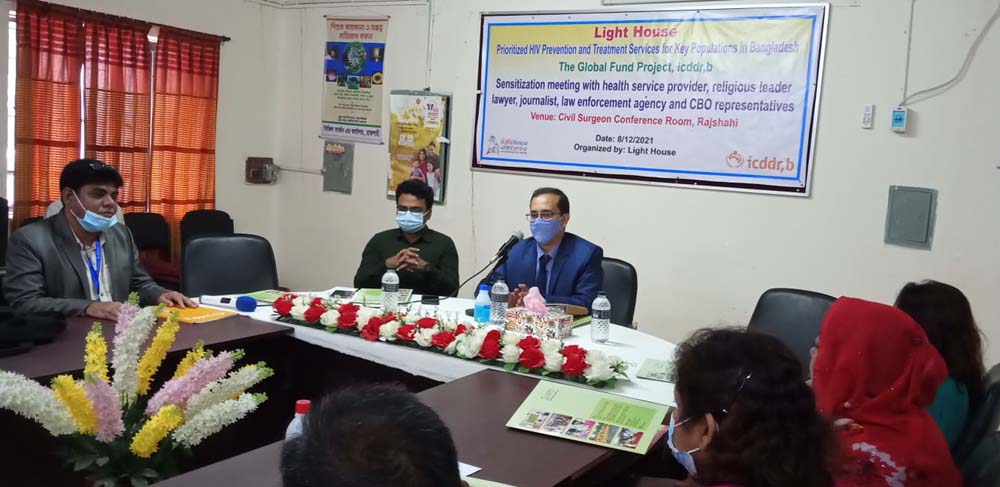
RAJSHAHI, Dec 9, 2021 (BSS) - Community awareness along with
participation can be the best ways of successful prevention of HIV/AIDS
spread and mitigating its risks.
Collective efforts of all the government and non-government
organizations concerned has become indispensable to bring all the
stakeholders and other gatekeepers under necessary awareness programmes to
prevent anymore infection of the deadly virus.
Health experts and development activists made the observation while
addressing a view sharing meeting with religious leaders, health service
providers, law enforcement agency and development activists in Rajshahi
today.
Light House organized the meeting at the office conference hall of Civil
Surgeon (CS) under the 'Prioritized HIV Prevention and Treatment Services for
Key Populations in Bangladesh Project' in collaboration with ICDDR's and
Global Fund.
CS Dr Quiume Talukder, Medical Officer Dr Bayzeed-ul Islam, religious
leader Abdul Halim Khan and Councilor of Rajshahi City Corporation Umme Salma
addressed the meeting as resource persons disseminating their expertise on
the issue.
Legal practitioner Mustaque Ahmed, Police Sub Inspector Abdul Jalil and
General Secretary of Diner Alo Hijra Sangstha Sagorika also spoke.
Manager of Drop-in-Center of Light House Kabir Hossain gave an overview
of their HIV/AIDS prevention activities during his PowerPoint presentation.
Main thrust of the meeting was to sensitize the leaders of influence
together with strengthening coordination among all the government and non-
government organizations concerned to expedite the HIV/AIDS prevention
activities in the region.
Dr Quiume Talukder said HIV/AIDS is not only a health issue but also a
social development concern. He stressed the need for more coordination among
different organizations and stakeholders to attain cherished results.
He added that only the government or any single organization isn't
capable of resisting the HIV/AIDS infection as its risk and vulnerability is
gradually being increased due to various reasons.
Religious leader Abdul Halim Khan mentioned that the main challenge to
prevent the HIV/AIDS is now being adjudged as the stigma and negative
attitude towards the vulnerable population like injecting drug users, sex
workers and professional blood donors.
He, however, emphasized the need for protecting the infected persons
from their human rights violations as they are also an integral part of the
society.
Universal access is a commitment to scale up access to HIV treatment,
prevention, care and support from the government development partners and
civil society, he added.